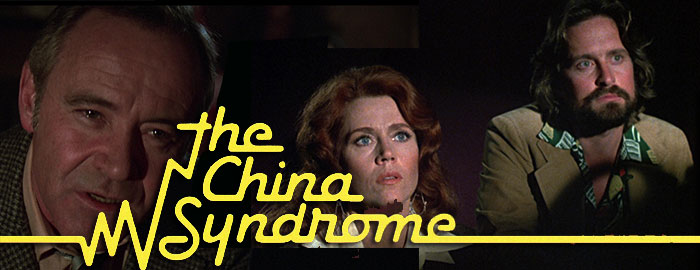
Color, 1979, 122 mins. 9 secs.
Directed by James Bridges
Starring Jane Fonda, Michael Douglas, Jack Lemmon
Indicator (Blu-ray) (UK R0 HD), Image Entertainment (Blu-ray) (US RA HD), Sony (DVD) (US R0 NTSC) / WS (1.85:1) (16:9)

Color, 1979, 122 mins. 9 secs.
Directed by James Bridges
Starring Jane Fonda, Michael Douglas, Jack Lemmon
Indicator (Blu-ray) (UK R0 HD), Image Entertainment (Blu-ray) (US RA HD), Sony (DVD) (US R0 NTSC) / WS (1.85:1) (16:9)
 prime slice of '70s paranoia that turned out
prime slice of '70s paranoia that turned out 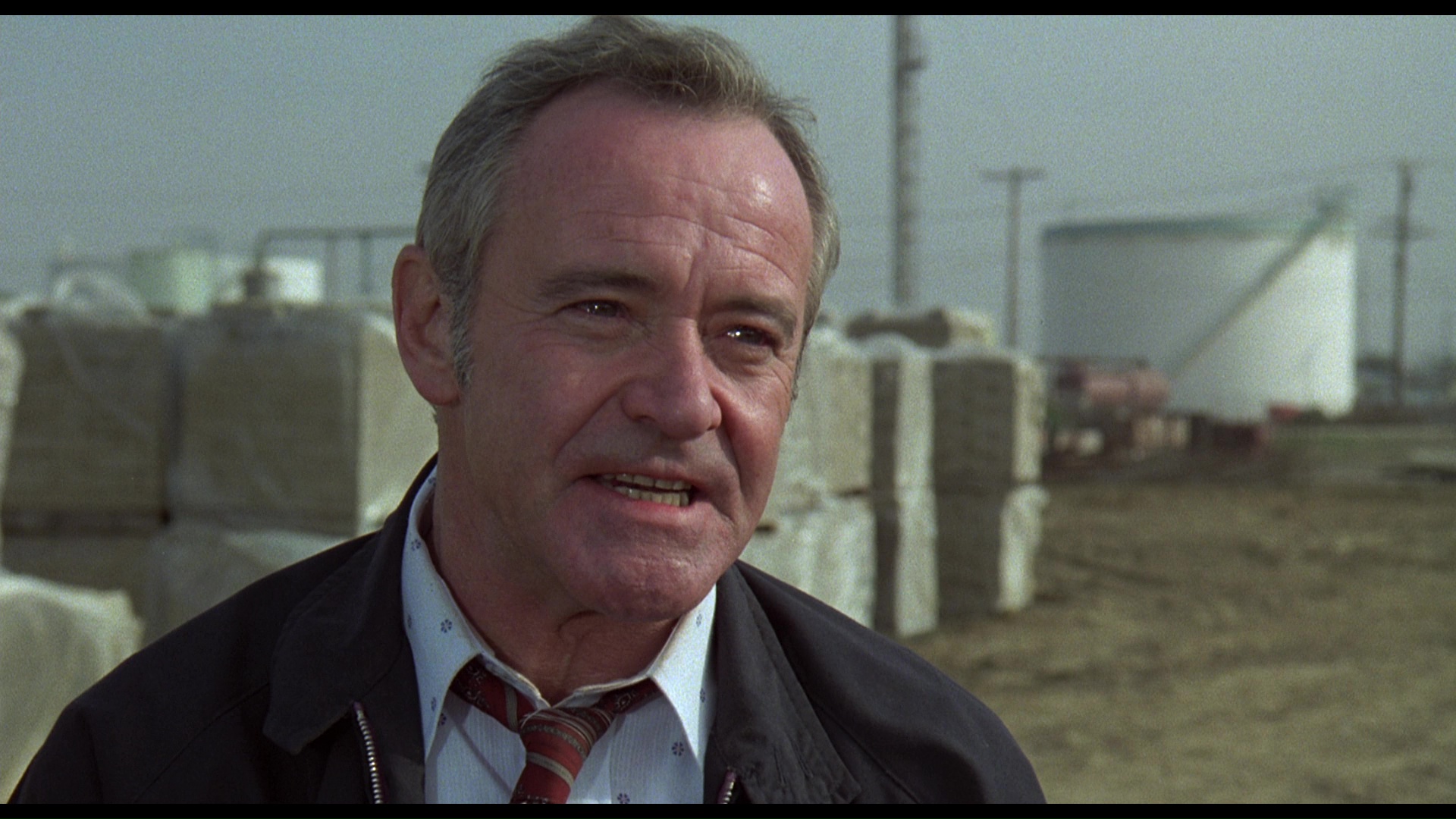 to be far more realistic than audiences expected, The China Syndrome came near the end of a wave of thrillers like The Parallax View, All the President's Men, and Three Days of the Condor. This time the subject matter wasn't shady government activity but the dangerous inner workings of nuclear power plants, whose regulation process was thought by many to pose a threat to the public welfare on a terrifying scale. Mildly controversial in the days leading up to its opening, the film was enough of a high-toned Hollywood production to find an audience right away with Jane Fonda, the most famous and talented leading actress of the day, ensuring plenty of serious press coverage. Less than two weeks later, the real-life Three Mile Island accident in Pennsylvania proved how believable the film's premise actually was, with the headlines reflecting the chilling subject matter as it was still running in theaters.
to be far more realistic than audiences expected, The China Syndrome came near the end of a wave of thrillers like The Parallax View, All the President's Men, and Three Days of the Condor. This time the subject matter wasn't shady government activity but the dangerous inner workings of nuclear power plants, whose regulation process was thought by many to pose a threat to the public welfare on a terrifying scale. Mildly controversial in the days leading up to its opening, the film was enough of a high-toned Hollywood production to find an audience right away with Jane Fonda, the most famous and talented leading actress of the day, ensuring plenty of serious press coverage. Less than two weeks later, the real-life Three Mile Island accident in Pennsylvania proved how believable the film's premise actually was, with the headlines reflecting the chilling subject matter as it was still running in theaters. 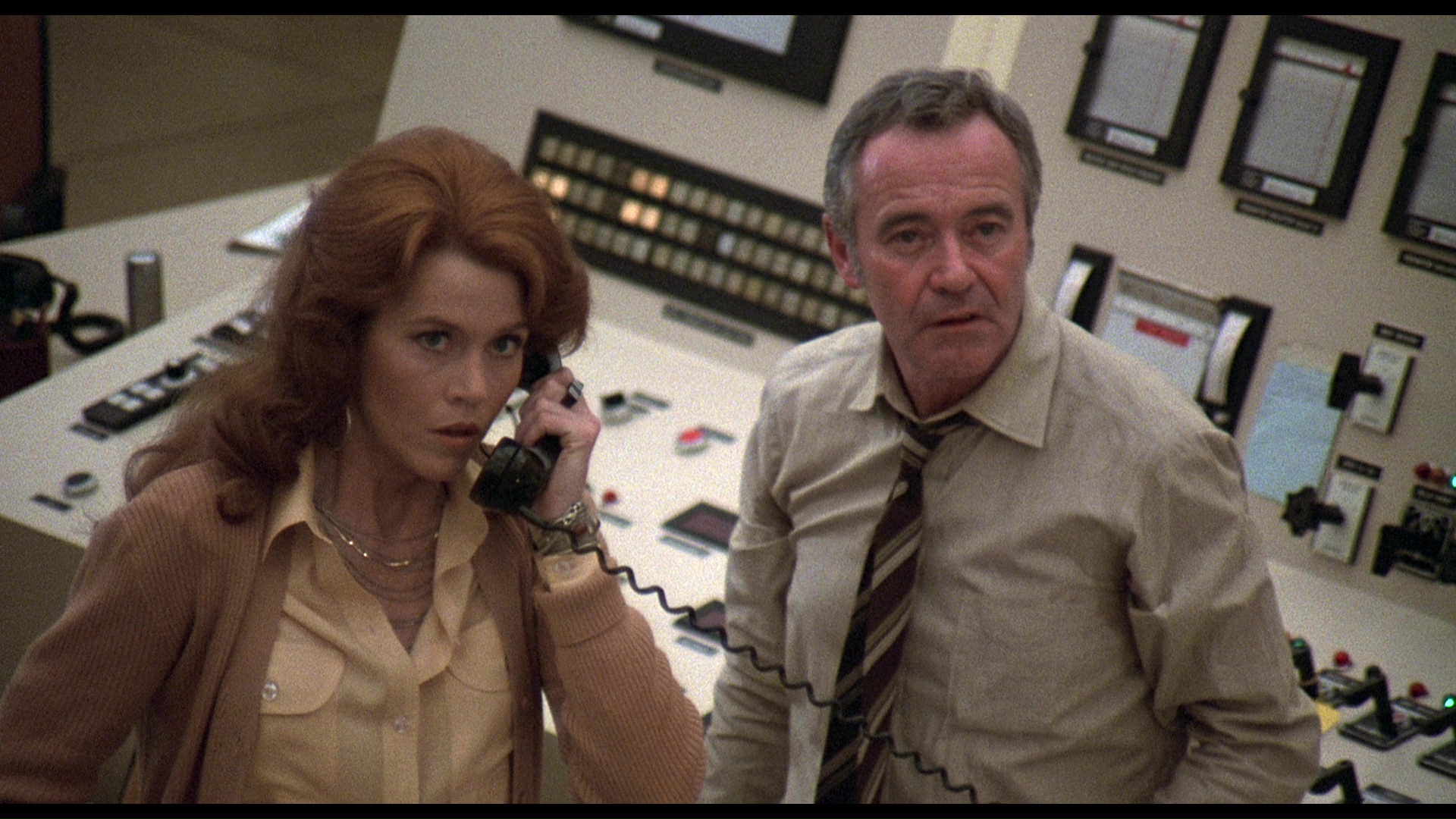 that the
that the 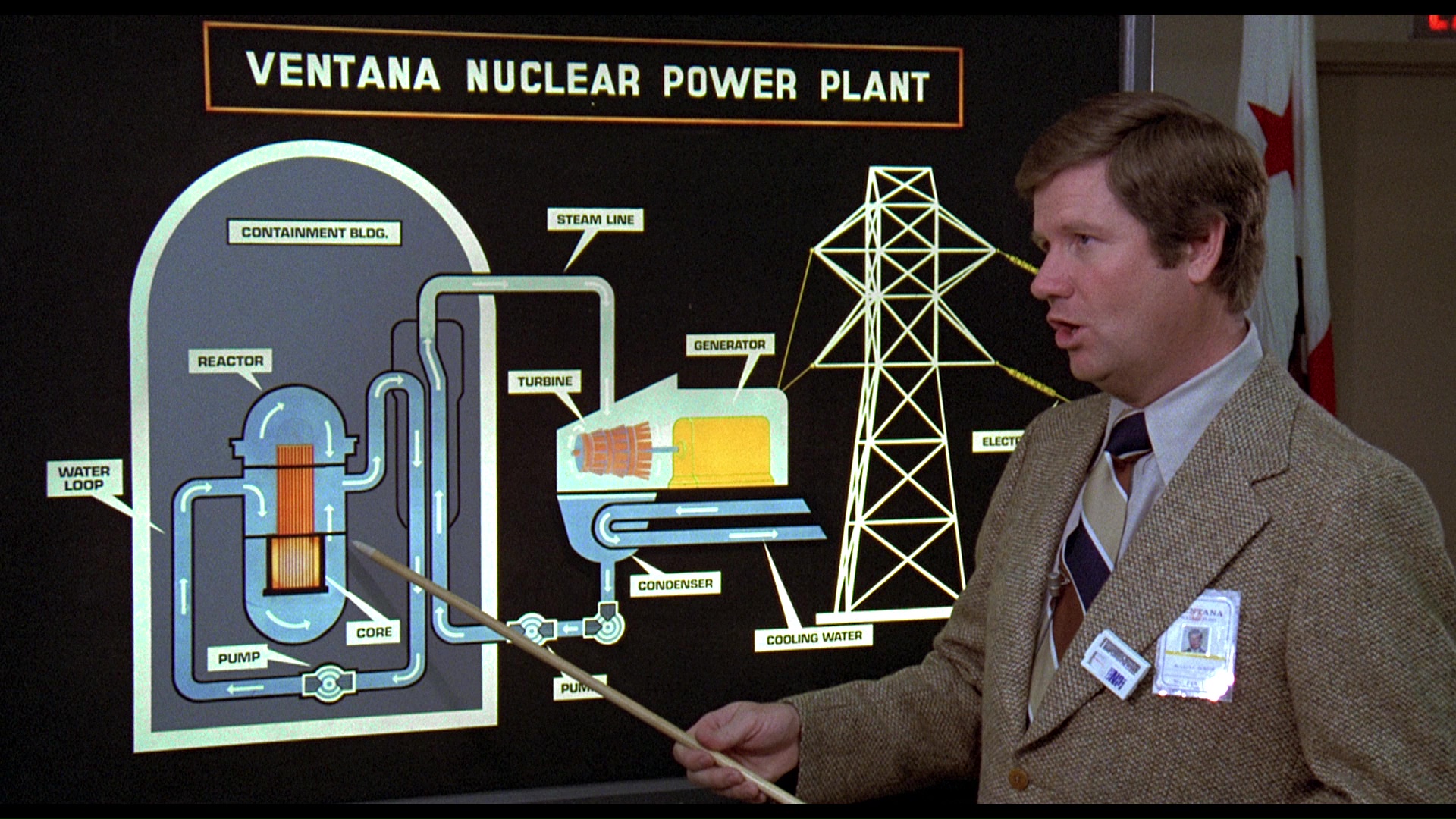 plant is dangerously unsafe and could pose a major risk if it opens prematurely. The paths of all three cross as the impending plant reopening approaches, and the powers that be are not above using intimidation to keep them silent.
plant is dangerously unsafe and could pose a major risk if it opens prematurely. The paths of all three cross as the impending plant reopening approaches, and the powers that be are not above using intimidation to keep them silent.  Regularly available on home video since its 1980 VHS release, The China Syndrome hit DVD in two editions from Sony, first as a bare bones edition in
Regularly available on home video since its 1980 VHS release, The China Syndrome hit DVD in two editions from Sony, first as a bare bones edition in  1999 and then as a special edition in 2004. The latter sported two featurettes, staring off with "A Fusion of Talent" (27m36s) with Douglas, Fonda, executive producer Bruce Gilbert, and Bridges' partner, Jack Larson discussing how two different stories ended up being fused together, how Fonda's part emerged (with Richard Dreyfuss getting dropped along the way), and how the film tapped into the activist attitudes of the era. "Creating a Controversy" (29m35s) features the same participants exploring the controversy of tackling a film about nuclear power, an industry that was less than thrilled with the production and proved to be very embarrassed by the events soon to come. The first Blu-ray was released from Image Entertainment in 2014 as part of its deal with Sony, porting over both featurettes and featuring an excellent HD transfer supplied by the studio as well as a new DTS-HD MA 5.1 English mix that uses the music and effects track to moderately spacious effect.
1999 and then as a special edition in 2004. The latter sported two featurettes, staring off with "A Fusion of Talent" (27m36s) with Douglas, Fonda, executive producer Bruce Gilbert, and Bridges' partner, Jack Larson discussing how two different stories ended up being fused together, how Fonda's part emerged (with Richard Dreyfuss getting dropped along the way), and how the film tapped into the activist attitudes of the era. "Creating a Controversy" (29m35s) features the same participants exploring the controversy of tackling a film about nuclear power, an industry that was less than thrilled with the production and proved to be very embarrassed by the events soon to come. The first Blu-ray was released from Image Entertainment in 2014 as part of its deal with Sony, porting over both featurettes and featuring an excellent HD transfer supplied by the studio as well as a new DTS-HD MA 5.1 English mix that uses the music and effects track to moderately spacious effect. 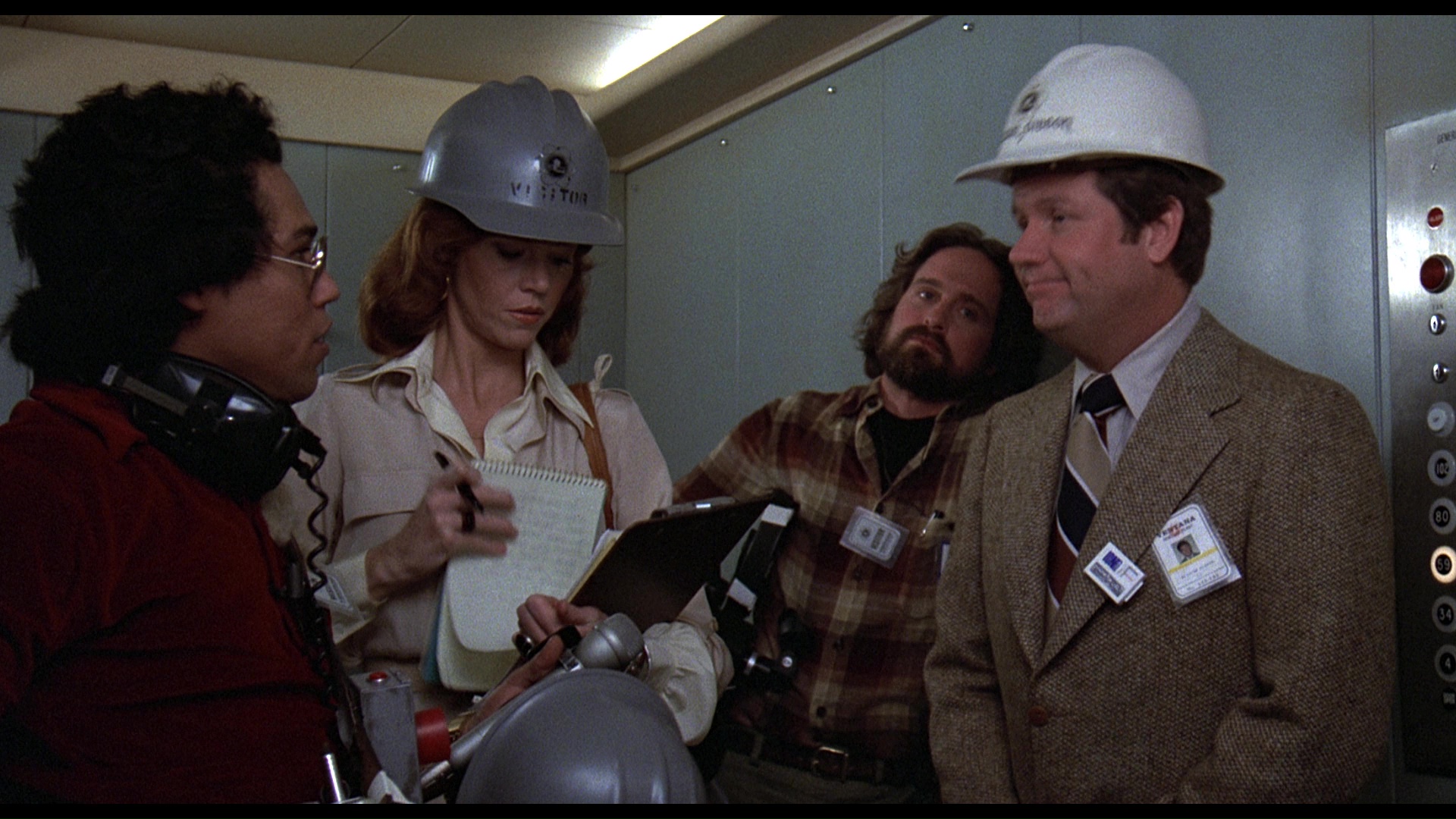 that results in the most satisfying presentation to date. The 5.1 mix is also present along with the original mono mix (LPCM) as well as a third audio option, a 1973 John Player Lecture
that results in the most satisfying presentation to date. The 5.1 mix is also present along with the original mono mix (LPCM) as well as a third audio option, a 1973 John Player Lecture 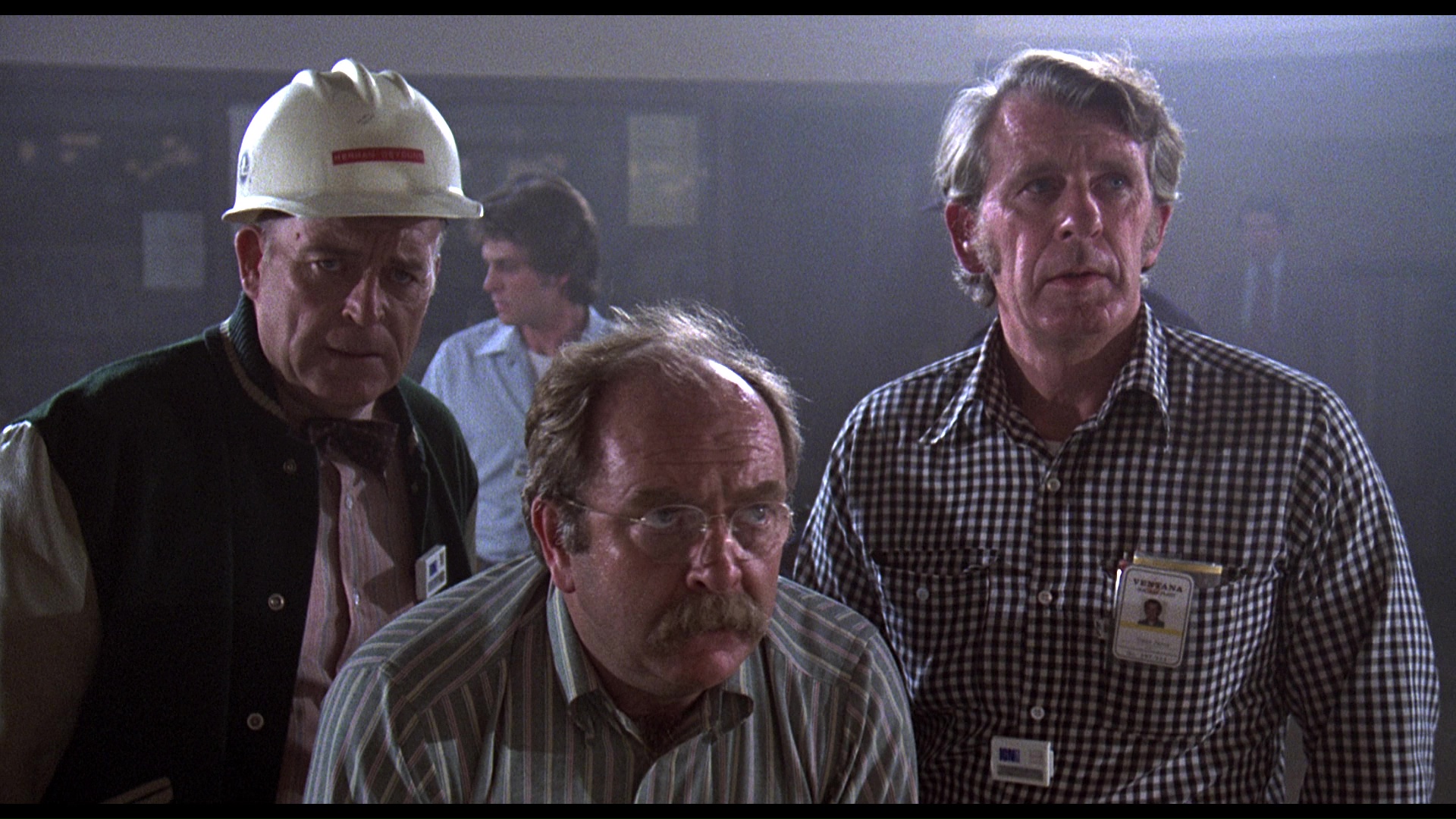 appearance by Jack Lemmon (running 80 minutes) covering his Hollywood career from his thoughts on fellow actors (his choice for the most intelligent one is a great one) and his big breaks into dramatic acting including Days of Wine and Roses. Obviously he doesn't touch on this film yet since it was still six years off, but it's a great insight into the genial actor's personality and career. The new "Assessing the Fallout" (17m35s) covers the evolution of the film and its cultural significance courtesy of Professor Tony Shaw, including the subsequent nuclear perils it anticipated and its appropriation as footage on news broadcasts. The theatrical trailer is included along with three deleted scenes (3m56s), adding a bit of business for Lemmon and showing Fonda dealing with some really icky sexism at a party. As usual, the insert booklet is a major extra in itself, featuring a new essay by Neil Sinyard (including a great reading of some subtle ambiguity in the ending), a Gergely Hubai overview of the rejected score by Michael Small, a sample of newspaper comments from the cast and crew's press junkets, an archival Cineaste interview with Gilbert, and a pair of sample reviews from the film's original release.
appearance by Jack Lemmon (running 80 minutes) covering his Hollywood career from his thoughts on fellow actors (his choice for the most intelligent one is a great one) and his big breaks into dramatic acting including Days of Wine and Roses. Obviously he doesn't touch on this film yet since it was still six years off, but it's a great insight into the genial actor's personality and career. The new "Assessing the Fallout" (17m35s) covers the evolution of the film and its cultural significance courtesy of Professor Tony Shaw, including the subsequent nuclear perils it anticipated and its appropriation as footage on news broadcasts. The theatrical trailer is included along with three deleted scenes (3m56s), adding a bit of business for Lemmon and showing Fonda dealing with some really icky sexism at a party. As usual, the insert booklet is a major extra in itself, featuring a new essay by Neil Sinyard (including a great reading of some subtle ambiguity in the ending), a Gergely Hubai overview of the rejected score by Michael Small, a sample of newspaper comments from the cast and crew's press junkets, an archival Cineaste interview with Gilbert, and a pair of sample reviews from the film's original release. ![]() -*******************
-*******************